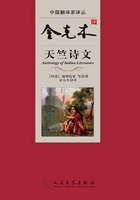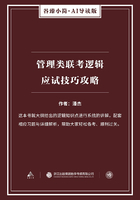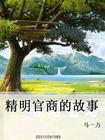Song of the Broad-Axe
1
Weapon shapely, naked, wan,
Head from the mother's bowels drawn,
Wooded flesh and metal bone, limb only one and lip only one,
Gray-blue leaf by red-heat grown, helve produced from a little seed sown,
Resting the grass amid and upon,
To be lean'd and to lean on.
Strong shapes and attributes of strong shapes, masculine trades, sights and sounds.
Long varied train of an emblem, dabs of music,
Fingers of the organist skipping staccato over the keys of the great organ.
2
Welcome are all earth's lands, each for its kind,
Welcome are lands of pine and oak,
Welcome are lands of the lemon and fig,
Welcome are lands of gold,
Welcome are lands of wheat and maize, welcome those of the grape,
Welcome are lands of sugar and rice,
Welcome the cotton-lands, welcome those of the white potato and sweet potato,
Welcome are mountains, flats, sands, forests, prairies,
Welcome the rich borders of rivers, table-lands, openings,
Welcome the measureless grazing-lands, welcome the teeming soil of orchards, flax, honey, hemp;
Welcome just as much the other more hard-faced lands,
Lands rich as lands of gold or wheat and fruit lands,
Lands of mines, lands of the manly and rugged ores,
Lands of coal, copper, lead, tin, zinc,
Lands of iron—lands of the make of the axe.
3
The log at the wood-pile, the axe supported by it,
The sylvan hut, the vine over the doorway, the space clear'd for garden,
The irregular tapping of rain down on the leaves after the storm is lull'd,
The walling and moaning at intervals, the thought of the sea,
The thought of ships struck in the storm and put on their beam ends, and the cutting away of masts,
The sentiment of the huge timbers of old-fashion'd houses and barns,
The remember'd print or narrative, the voyage at a venture of men, families, goods,
The disembarkation, the founding of a new city,
The voyage of those who sought a New England and found it, the outset anywhere,
The settlements of the Arkansas, Colorado, Ottawa, Willamette,
The slow progress, the scant fare, the axe, rifle, saddle-bags;
The beauty of all adventurous and daring persons,
The beauty of wood-boys and wood-men with their clear untrimm'd faces,
The beauty of independence, departure, actions that rely on themselves,
The American contempt for statutes and ceremonies, the boundless impatience of restraint,
The loose drift of character, the inkling through random types, the solidification;
The butcher in the slaughter-house, the hands aboard schooners and sloops, the raftsman, the pioneer,
Lumbermen in their winter camp, daybreak in the woods, stripes of snow on the limbs of trees, the occasional snapping,
The glad clear sound of one's own voice, the merry song, the natural life of the woods, the strong day's work,
The blazing fire at night, the sweet taste of supper, the talk, the bed of hemlock-boughs and the bear-skin;
The house-builder at work in cities or anywhere,
The preparatory jointing, squaring, sawing, mortising,
The hoist-up of beams, the push of them in their places, laying them regular,
Setting the studs by their tenons in the mortises according as they were prepared,
The blows of mallets and hammers, the attitudes of the men, their curv'd limbs,
Bending, standing, astride the beams, driving in pins, holding on by posts and braces,
The hook'd arm over the plate, the other arm wielding the axe,
The floor-men forcing the planks close to be nail'd,
Their postures bringing their weapons downward on the bearers,
The echoes resounding through the vacant building:
The huge storehouse carried up in the city well under way,
The six framing-men, two in the middle and two at each end, carefully bearing on their shoulders a heavy stick for a cross-beam,
The crowded line of masons with trowels in their right hands rapidly laying the long side-wall, two hundred feet from front to rear,
The flexible rise and fall of backs, the continual click of the trowels striking the bricks,
The bricks one after another each laid so workmanlike in its place, and set with a knock of the trowel-handle,
The piles of materials, the mortar on the mortar-boards, and the steady replenishing by the hod-men;
Spar-makers in the spar-yard, the swarming row of well-grown apprentices,
The swing of their axes on the square-hew'd log shaping it toward the shape of a mast,
The brisk short crackle of the steel driven slantingly into the pine,
The butter-color'd chips flying off in great flakes and slivers,
The limber motion of brawny young arms and hips in easy costumes,
The constructor of wharves, bridges, piers, bulk-heads, floats, stays against the sea;
The city fireman, the fire that suddenly bursts forth in the close-pack'd square,
The arriving engines, the hoarse shouts, the nimble stepping and daring,
The strong command through the fire-trumpets, the falling in line, the rise and fall of the arms forcing the water,
The slender, spasmic, blue-white jets, the bringing to bear of the hooks and ladders and their execution,
The crash and cut away of connecting wood-work, or through floors if the fire smoulders under them,
The crowd with their lit faces watching, the glare and dense shadows;
The forger at his forge-furnace and the user of iron after him,
The maker of the axe large and small, and the welder and temperer,
The chooser breathing his breath on the cold steel and trying the edge with his thumb,
The one who clean-shapes the handle and sets it firmly in the socket;
The shadowy processions of the portraits of the past users also,
The primal patient mechanics, the architects and engineers,
The far-off Assyrian edifice and Mizra edifice,
The Roman lictors preceding the consuls,
The antique European warrior with his axe in combat,
The uplifted arm, the clatter of blows on the helmeted head,
The death-howl, the limpsy tumbling body, the rush of friend and foe thither,
The siege of revolted lieges determin'd for liberty,
The summons to surrender, the battering at castle gates, the truce and parley,
The sack of an old city in its time,
The bursting in of mercenaries and bigots tumultuously and disorderly,
Roar, flames, blood, drunkenness, madness,
Goods freely rifled from houses and temples, screams of women in the gripe of brigands,
Craft and thievery of camp-followers, men running, old persons despairing,
The hell of war, the cruelties of creeds,
The list of all executive deeds and words just or unjust,
The power of personality just or unjust.
4
Muscle and pluck forever!
What invigorates life invigorates death,
And the dead advance as much as the living advance,
And the future is no more uncertain than the present,
For the roughness of the earth and of man encloses as much as the delicatesse of the earth and of man,
And nothing endures but personal qualities.
What do you think endures?
Do you think a great city endures?
Or a teeming manufacturing state? or a prepared constitution? or the best built steamships?
Or hotels of granite and iron? or any chef-d'oeuvres of engineering, forts, armaments?
Away! these are not to be cherish'd for themselves,
They fill their hour, the dancers dance, the musicians play for them,
The show passes, all does well enough of course,
All does very well till one flash of defiance.
A great city is that which has the greatest men and women,
If it be a few ragged huts it is still the greatest city in the whole world.
5
The place where a great city stands is not the place of stretch'd wharves, docks, manufactures, deposits of produce merely,
Nor the place of ceaseless salutes of new-comers or the anchor-lifters of the departing,
Nor the place of the tallest and costliest buildings or shops selling goods from the rest of the earth,
Nor the place of the best libraries and schools, nor the place where money is plentiest,
Nor the place of the most numerous population.
Where the city stands with the brawniest breed of orators and bards,
Where the city stands that is belov'd by these, and loves them in return and understands them,
Where no monuments exist to heroes but in the common words and deeds,
Where thrift is in its place, and prudence is in its place,
Where the men and women think lightly of the laws,
Where the slave ceases, and the master of slaves ceases,
Where the populace rise at once against the never-ending audacity of elected persons,
Where fierce men and women pour forth as the sea to the whistle of death pours its sweeping and unript waves,
Where outside authority enters always after the precedence of inside authority,
Where the citizen is always the head and ideal, and President, Mayor, Governor and what not, are agents for pay,
Where children are taught to be laws to themselves, and to depend on themselves,
Where equanimity is illustrated in affairs,
Where speculations on the soul are encouraged,
Where women walk in public processions in the streets the same as the men,
Where they enter the public assembly and take places the same as the men;
Where the city of the faithfulest friends stands,
Where the city of the cleanliness of the sexes stands,
Where the city of the healthiest fathers stands,
Where the city of the best-bodied mothers stands,
There the great city stands.
6
How beggarly appear arguments before a defiant deed!
How the floridness of the materials of cities shrivels before a man's or woman's look!
All waits or goes by default till a strong being appears;
A strong being is the proof of the race and of the ability of the universe,
When he or she appears materials are overaw'd,
The dispute on the soul stops,
The old customs and phrases are confronted, turn'd back, or laid away.
What is your money-making now? what can it do now?
What is your respectability now?
What are your theology, tuition, society, traditions, statute-books, now?
Where are your jibes of being now?
Where are your cavils about the soul now?
7
A sterile landscape covers the ore, there is as good as the best for all the forbidding appearance,
There is the mine, there are the miners,
The forge-furnace is there, the melt is accomplish'd, the hammersmen are at hand with their tongs and hammers,
What always served and always serves is at hand.
Than this nothing has better served, it has served all,
Served the fluent-tongued and subtle-sensed Greek, and long ere the Greek,
Served in building the buildings that last longer than any,
Served the Hebrew, the Persian, the most ancient Hindustanee,
Served the mound-raiser on the Mississippi, served those whose relics remain in Central America,
Served Albic temples in woods or on plains, with unhewn pillars and the druids,
Served the artificial clefts, vast, high, silent, on the snow-cover'd hills of Scandinavia,
Served those who time out of mind made on the granite walls rough sketches of the sun, moon, stars, ships, ocean waves,
Served the paths of the irruptions of the Goths, served the pastoral tribes and nomads,
Served the long distant Kelt, served the hardy pirates of the Baltic,
Served before any of those the venerable and harmless men of Ethiopia,
Served the making of helms for the galleys of pleasure and the making of those for war,
Served all great works on land and all great works on the sea,
For the mediaeval ages and before the mediaeval ages,
Served not the living only then as now, but served the dead.
8
I see the European headsman,
He stands mask'd, clothed in red, with huge legs and strong naked arms,
And leans on a ponderous axe.
(Whom have you slaughter'd lately European headsman?
Whose is that blood upon you so wet and sticky?)
I see the clear sunsets of the martyrs,
I see from the scaffolds the descending ghosts,
Ghosts of dead lords, uncrown'd ladies, impeach'd ministers, rejected kings,
Rivals, traitors, poisoners, disgraced chieftains and the rest.
I see those who in any land have died for the good cause,
The seed is spare, nevertheless the crop shall never run out,
(Mind you O foreign kings, O priests, the crop shall never run out.)
I see the blood wash'd entirely away from the axe,
Both blade and helve are clean,
They spirt no more the blood of European nobles, they clasp no more the necks of queens.
I see the headsman withdraw and become useless,
I see the scaffold untrodden and mouldy, I see no longer any axe upon it,
I see the mighty and friendly emblem of the power of my own race, the newest, largest race.
9
(America! I do not vaunt my love for you,
I have what I have.)
The axe leaps!
The solid forest gives fluid utterances,
They tumble forth, they rise and form,
Hut, tent, landing, survey,
Flail, plough, pick, crowbar, spade,
Shingle, rail, prop, wainscot, lamb, lath, panel, gable,
Citadel, ceiling, saloon, academy, organ, exhibition-house, library,
Cornice, trellis, pilaster, balcony, window, turret, porch,
Hoe, rake, pitchfork, pencil, wagon, staff, saw, jack-plane, mallet, wedge, rounce,
Chair, tub, hoop, table, wicket, vane, sash, floor,
Work-box, chest, string'd instrument, boat, frame, and what not,
Capitols of States, and capitol of the nation of States,
Long stately rows in avenues, hospitals for orphans or for the poor or sick,
Manhattan steamboats and clippers taking the measure of all seas.
The shapes arise!
Shapes of the using of axes anyhow, and the users and all that neighbors them,
Cutters down of wood and haulers of it to the Penobscot or Kenebec,
Dwellers in cabins among the Californian mountains or by the little lakes, or on the Columbia,
Dwellers south on the banks of the Gila or Rio Grande, friendly gatherings, the characters and fun,
Dwellers along the St. Lawrence, or north in Kanada, or down by the Yellowstone, dwellers on coasts and off coasts,
Seal-fishers, whalers, arctic seamen breaking passages through the ice.
The shapes arise!
Shapes of factories, arsenals, foundries, markets,
Shapes of the two-threaded tracks of railroads,
Shapes of the sleepers of bridges, vast frameworks, girders, arches,
Shapes of the fleets of barges, tows, lake and canal craft, river craft,
Ship-yards and dry-docks along the Eastern and Western seas, and in many a bay and by-place,
The live-oak kelsons, the pine planks, the spars, the hackmatack-roots for knees,
The ships themselves on their ways, the tiers of scaffolds, the workmen busy outside and inside,
The tools lying around, the great auger and little auger, the adze, bolt, line, square, gouge, and bead-plane.
10
The shapes arise!
The shape measur'd, saw'd, jack'd, join'd, stain'd,
The coffin-shape for the dead to lie within in his shroud,
The shape got out in posts, in the bedstead posts, in the posts of the bride's bed,
The shape of the little trough, the shape of the rockers beneath, the shape of the babe's cradle,
The shape of the floor-planks, the floor-planks for dancers' feet,
The shape of the planks of the family home, the home of the friendly parents and children,
The shape of the roof of the home of the happy young man and woman, the roof over the well-married young man and woman,
The roof over the supper joyously cook'd by the chaste wife, and joyously eaten by the chaste husband, content after his day's work.
The shapes arise!
The shape of the prisoner's place in the court-room, and of him or her seated in the place,
The shape of the liquor-bar lean'd against by the young rum-drinker and the old rum-drinker,
The shape of the shamed and angry stairs trod by sneaking foot- steps,
The shape of the sly settee, and the adulterous unwholesome couple,
The shape of the gambling-board with its devilish winnings and losings,
The shape of the step-ladder for the convicted and sentenced murderer, the murderer with haggard face and pinion'd arms,
The sheriff at hand with his deputies, the silent and white-lipp'd crowd, the dangling of the rope.
The shapes arise!
Shapes of doors giving many exits and entrances,
The door passing the dissever'd friend flush'd and in haste,
The door that admits good news and bad news,
The door whence the son left home confident and puff'd up,
The door he enter'd again from a long and scandalous absence, diseas'd, broken down, without innocence, without means.
11
Her shape arises,
She less guarded than ever, yet more guarded than ever,
The gross and soil'd she moves among do not make her gross and soil'd,
She knows the thoughts as she passes, nothing is conceal'd from her,
She is none the less considerate or friendly therefor,
She is the best belov'd, it is without exception, she has no reason to fear and she does not fear,
Oaths, quarrels, hiccupp'd songs, smutty expressions, are idle to her as she passes,
She is silent, she is possess'd of herself, they do not offend her,
She receives them as the laws of Nature receive them, she is strong,
She too is a law of Nature—there is no law stronger than she is.
12
The main shapes arise!
Shapes of Democracy total, result of centuries,
Shapes ever projecting other shapes,
Shapes of turbulent manly cities,
Shapes of the friends and home-givers of the whole earth,
Shapes bracing the earth and braced with the whole earth.















